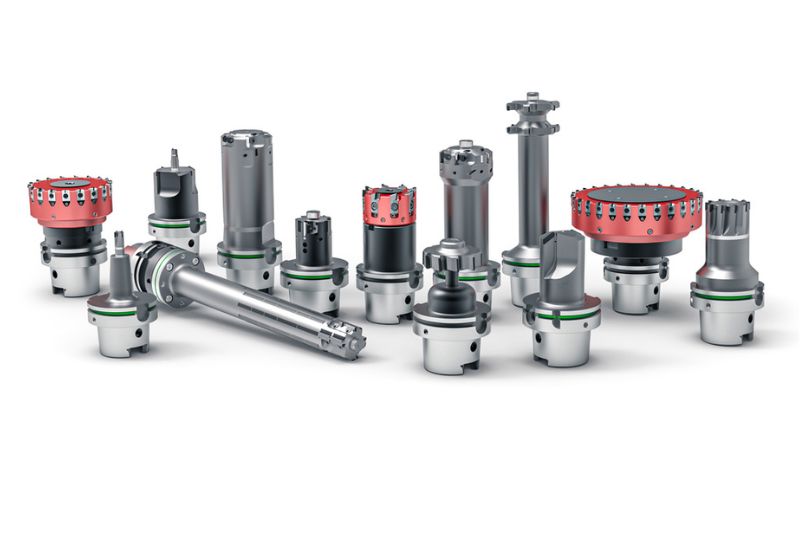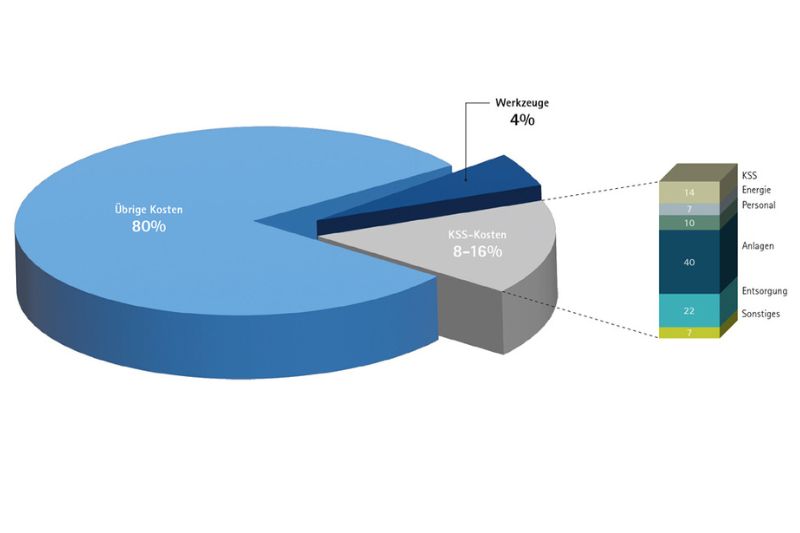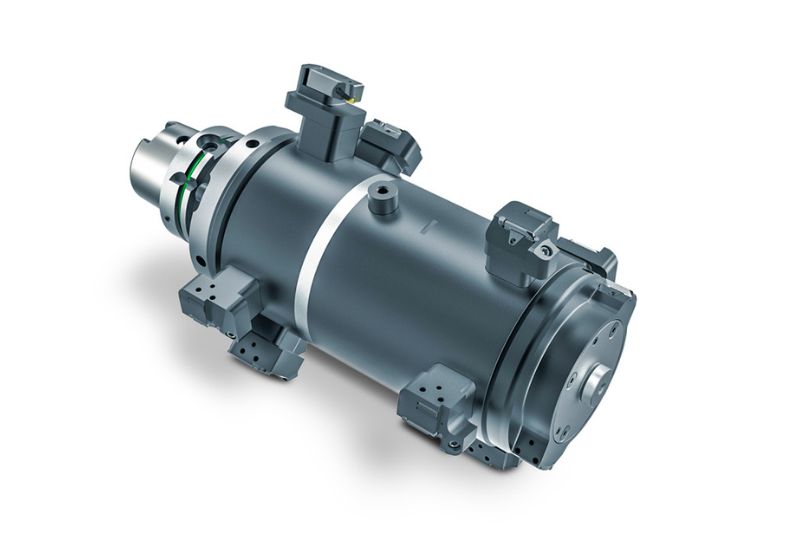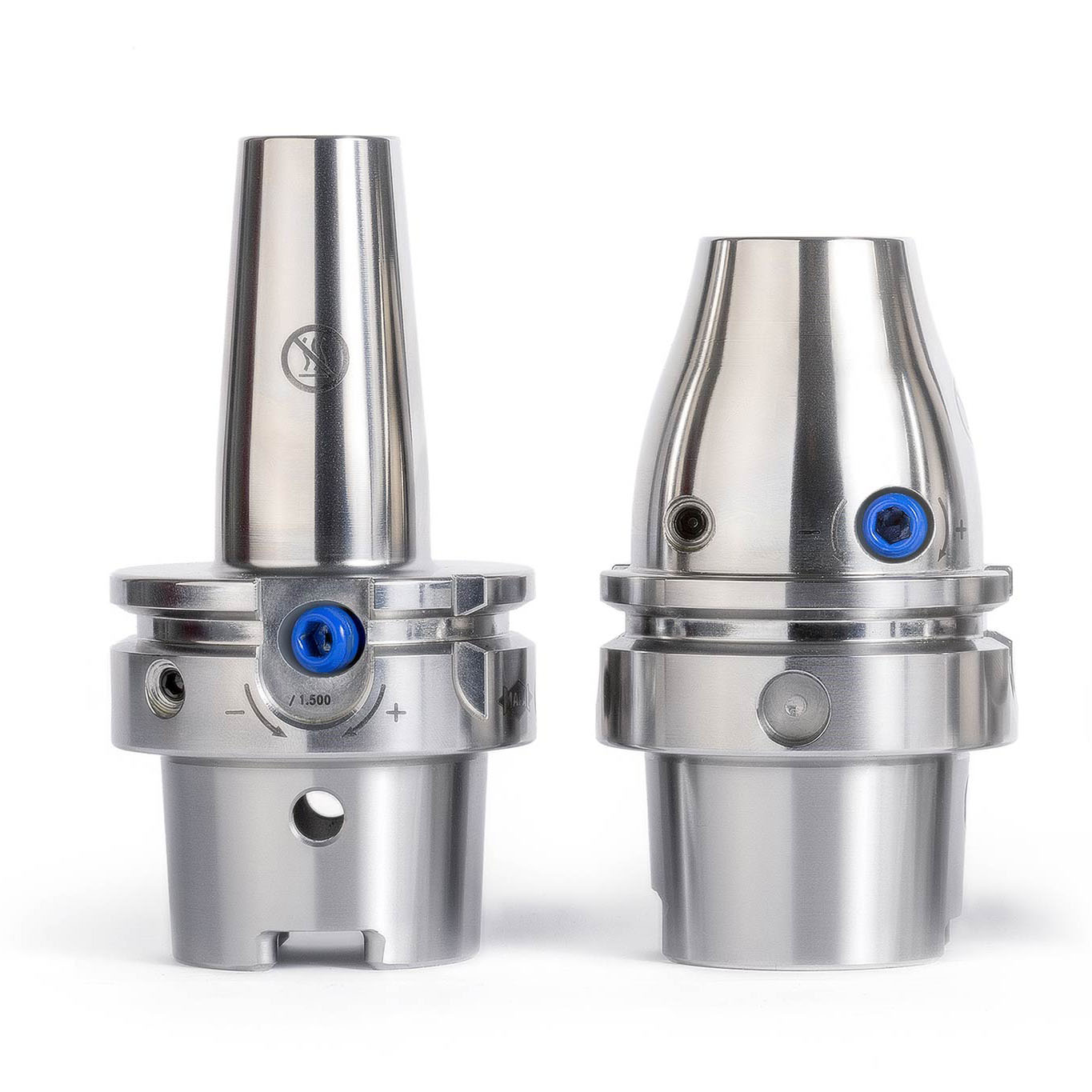16.11.2022
Grüne Werkzeuge schonen Ressourcen
Minimalmengenschmierung mit MAPAL
Als vor knapp 30 Jahren die Bearbeitung mit Minimalmengenschmierung (MMS) Einzug fand, machten die möglichen Kosteneinsparungen diese Technik interessant. Heute stehen Ressourcenschonung, Energieeffizienz und eine verbesserte CO2-Bilanz im Vordergrund. Besonders attraktiv ist der Einsatz von MMS bei neuen Fertigungslinien, etwa für die E-Mobilität.

Um MMS erfolgreich einzusetzen, müssen alle Komponenten im Produktionsprozess aufeinander abgestimmt sein. Maschine, MMS-System, Medium, Werkstückmaterial, Spannvorrichtung, Prozessfolge, Absauganlage, Werkzeug und Spanntechnik bilden eine Einheit. MAPAL bietet nahezu alle seiner Werkzeuge auch in Varianten für MMS an. Die für diesen ressourcenschonenden Einsatz geeigneten Werkzeuge und Spannzeuge kennzeichnet der Hersteller aus Aalen mit einer grünen Markierung.
Bei diesen „grünen Werkzeugen“ sind die MMS-Schnittstellen und Kühlkanäle so modifiziert, dass das MMS-Medium konstant und strömungsorientiert an die Schneid- und Führungselemente der Werkzeuge transportiert wird. Die Austritte sind näher an der Zerspanstelle angeordnet und haben steilere Austrittswinkel als bei Werkzeugen für die Nassbearbeitung. Zur Unterstützung der Spanabfuhr sind bei MMS-geeigneten Werkzeugen die Spanräume bei Bedarf spiralisiert, poliert und größer ausgeführt.
Weniger Schmierstoff, weniger Energieverbrauch

Beim Einsatz herkömmlicher Kühlschmiertechnik in einem Bearbeitungszentrum entfallen auf deren Komponenten Hochdruck, Niederdruck, Rückpumpe und Hochdruckfilter insgesamt rund 50 Prozent des ganzen Energieverbrauchs. Auch wenn durch den Einsatz der MMS-Technologie der Verbrauch von Druckluft steigt, bleibt in Summe eine mögliche Energieeinsparung von bis zu 40 Prozent – eine wesentliche Verbesserung der CO2-Bilanz in der Produktion. Zur Ressourcenschonung gehören auch nachweislich längere Standzeiten der Werkzeuge im MMS-Einsatz vor allem bei der Bearbeitung von Aluminium. Belegbar ist dies vor allem durch die Vermeidung des Thermoschock-Effektes, welcher bei der Nassbearbeitung auftritt.
MAPAL stellt derzeit eine höhere Nachfrage nach Prozessen mit Minimalmengenschmierung vor allem aus asiatischen Ländern fest. Dabei ist hier die Schonung von Ressourcen von Anfang an ein Argument. Dass Späne nicht mehr aufbereitet werden müssen, sondern ohne Reinigungsprozesse weiterverarbeitet werden können, erleichtert zudem die Abläufe.
In Deutschland forcieren Automobilhersteller seit einigen Jahren den Umstieg auf MMS. Komplett gelang die Umstellung allerdings nicht. Zum einen sprechen in manchen Bereichen wirtschaftliche Gründe dafür, vorhandene Maschinen, Kühlpumpen und Aufbereitungsanlagen weiter zu betreiben. Unter Umständen sind es auch etablierte Prozesse, die fortgeführt werden.
Wenn es aber um die Einrichtung neuer Fertigungslinien geht, kommt MMS von Anfang an ins Spiel. Das gilt insbesondere für die Elektromobilität. Die Industrie hat großes Interesse daran, gerade auch die Bauteile für umweltfreundliche Fahrzeuge möglichst ressourcenschonend mit niedrigen CO2-Emissionen herzustellen. MAPAL ermöglicht inzwischen auch den MMS-Einsatz für komplexe Präzisionswerkzeuge, die anfangs noch nicht dafür ausgelegt waren.
Werkzeuge für die E-Mobilität

Ein Beispiel ist das Werkzeug für die Bearbeitung der Statorbohrung eines Elektromotors. Sein großer Bearbeitungsdurchmesser bedingt eine komplexe Kühlkanalführung im Werkzeug und einen an die Wirkstelle anpassbaren Anströmwinkel des MMS-Mediums. MAPAL konnte die entsprechende Kühlkanalführung im Werkzeug unter anderem mithilfe der additiven Fertigung realisieren. Der 3D-Druck und angepasste Übergabeelemente innerhalb des Werkzeuges macht eine gleichbleibend gute Versorgung aller Schneid- und Führungselemente mit MMS möglich. Weil mit sehr geringen Ölmengen und großen Längen-Durchmesserverhältnissen gearbeitet wird, sind Abdichtungen der Übergabestellen, sowie versackungsfreie und strömungsoptimierte Kühlkanäle im Grundkörper besonders wichtig. Die additive Fertigung, die auch für andere MMS-Werkzeuge eingesetzt wird, ermöglicht zudem angepasste Durchmesser für die Druckluft, was sich mit einem niedrigeren Luftmengenverbrauch ebenfalls günstig auf die Energiebilanz auswirkt.
Die MMS-Technologie wird laufend weiterentwickelt. Neue, qualitativ hochwertige Gerätegenerationen der MMS-Systemhersteller in Kombination mit hochwertigen Medien gewährleisten immer feinere Aerosole beziehungsweise Öl-Luft-Gemische. Darüber hinaus wird die Abstimmung zwischen MMS-System und den einzelnen Werkzeugen optimiert, um für jede Anwendung eine genau dosierte, bedarfsgerechte Ölmenge zur Verfügung stellen zu können. So liefert die Zerspanung mit Minimalmengenschmierung einen noch größeren Beitrag zur Nachhaltigkeit in fertigenden Unternehmen.

Kontakt
Kathrin Rehor Public Relations Kathrin.Rehor@mapal.com Tel.: +49 7361 585 3342



